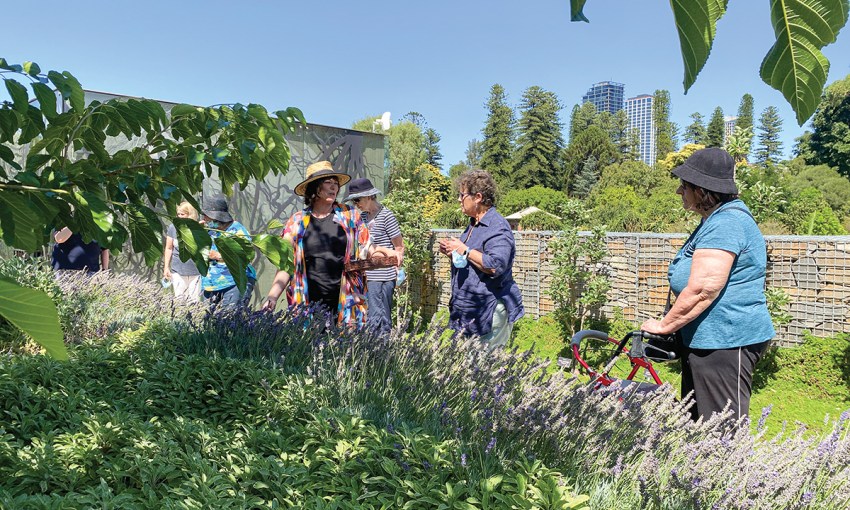How often have you been told to “stop and smell the roses”? Well, as it happens, it’s very good advice for our physical and emotional wellbeing.
The power of plants
In a modern world weighed down with talk of doom and gloom, plants are providing the perfect panacea. Study upon study has shown that nature is indeed nurturing, and that the more time we spend around plants, the happier and healthier we become.
Gardening – once this nation’s number one pastime – has had a meteoric revival. Over recent Covid lockdowns, Australians flocked to garden centres, purchasing plants, potting mixes and sundries by the trolley-load. Some people turned to growing their own food, while others were eager to use their green pursuits to reduce boredom in a meaningful way.
Life might now be slowly returning to pre-Covid normal, but production nurseries are still experiencing strong sales, indicating that the green boom is likely to continue for the foreseeable future.
Gardening has so many different meditative connections. For some, hanging on the end of a hose giving the plants a sprinkle after a long day at work is their perfect wind down activity. For others, pottering in the yard, pulling weeds, trimming plants and other garden tasks provide a positive sense of achievement. Or, just watching a newly planted seedling stretch, fill and fruit is a thing of wonder for many.
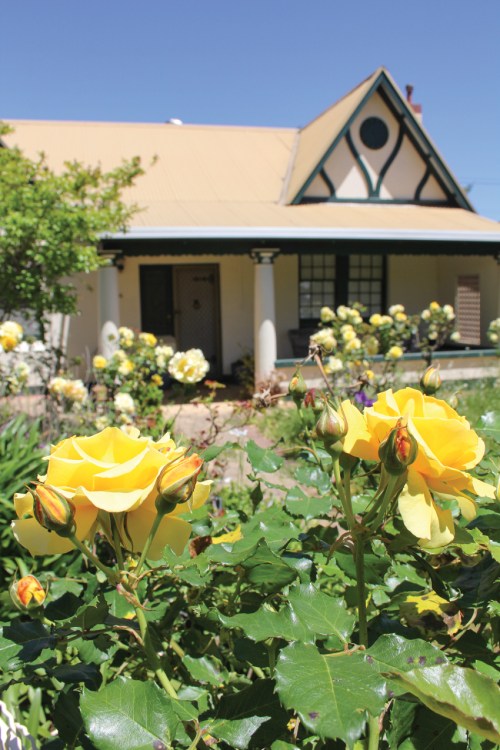
Whatever it is, just being around plants has a demonstratively good effect on our wellbeing.
The term “tree hugger” may have been used somewhat disparagingly in the past, however there is definitely a positive to wrapping your arms around a tree trunk. Apart from getting outdoors, research has shown a tree embrace can help boost the levels of the “happiness hormome” oxytocin, helping buffer and reduce cortisol levels leading to lower stress and anxiety. It’s always good to check for rogue insects before getting up close and personal, then give that tree a good 30-second hug – you will be amazed at how good you feel afterwards!
The same goes for taking your shoes and socks off and walking barefoot on the lawn. The feeling of cool grass under your feet and through the toes is exhilarating and probably evokes happy childhood memories of running around the lawn playing chasey. While the running about may be a challenge, release that inner child and spend some shoeless moments on your turf.
Swapping screen time for green time ensures more time is spent outdoors. Given last year’s cold and cloudy spring, it’s not surprising a few more people are experiencing low levels of Vitamin D. Slip outside and expose yourself to a little sunlight, it will give your body that Vitamin D boost and do wonders for your general wellbeing.
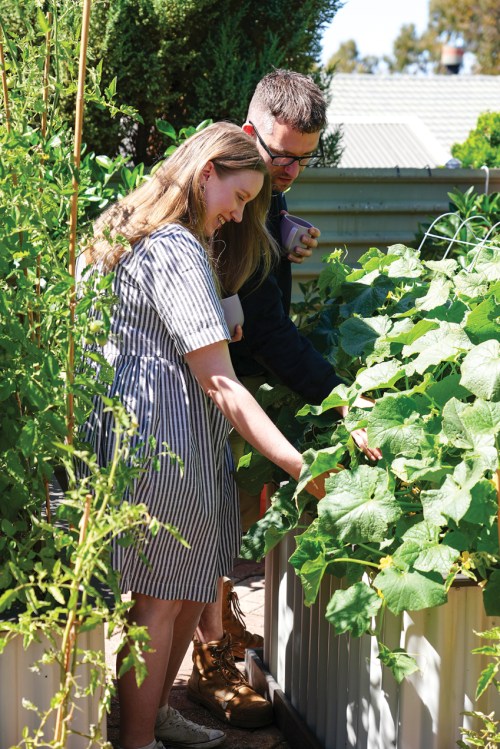
The tangible benefits of spending time with plants are becoming more and more recognised. In a number of countries, medical practitioners prescribe nature time as an integral part of treatments for a broad range of general and emotional disorders.
Therapeutic horticulture is a developing field which harnesses gardening, garden and nature-based activities to facilitate positive health and wellbeing outcomes. The Adelaide Botanic Gardens Therapeutic Horticulture program pilot commenced in April 2021 and was an initiative of former director Dr Lucy Sutherland and is enthusiastically being continued by current director Michael Harvey.
The Adelaide Botanic Gardens Therapeutic Horticulture program’s designer and presenter is Emma Lewellyn, a horticulturalist and natural therapies practitioner with a background in design and education.
Emma began the people-care-path of therapeutic horticulture in 2016 when she worked as a garden educator with children, many of whom had challenging life circumstances and were affected by trauma. Realising these kids needed more than learning how to sow carrots, they also needed wellbeing tools. Emma extended the learning environment by establishing a school garden. Drawing on her experience in holistic health, she began weaving mindfulness into garden lessons with very positive results. Following this success, Emma has developed a horticultural practice focused on health and wellbeing.
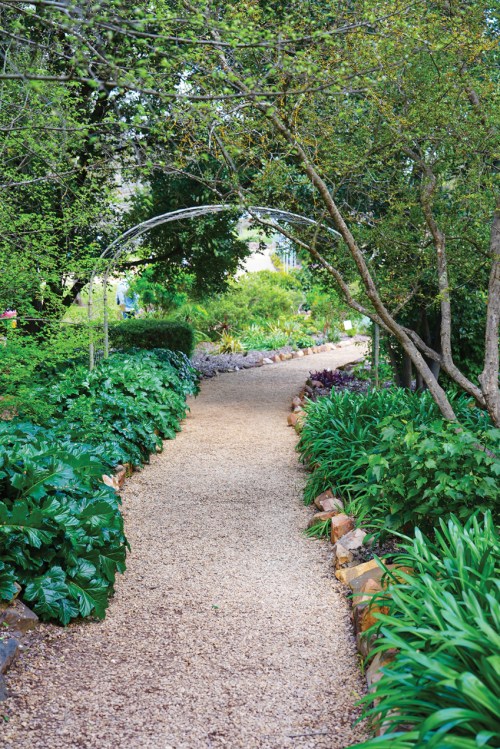
The current Adelaide Botanic Gardens Therapeutic Horticulture program has been designed and developed to deliver various therapeutic horticulture programs for vulnerable cohorts within the community.
For example, the Global Garden – located on the eastern side of Adelaide Botanic Garden between the First Creek Wetlands and the National Wine Centre – has been designed for members of South Australia’s new migrant and Culturally and Linguistically Diverse (CALD) community, in collaboration with the Migrant Resource Centre. Here in the Global Garden, participants use plants as a pathway to connect with their culture or ethnicity. Plants are often selected and grown allowing each member of the group to share their knowledge and stories along with its cultural importance.
The wonderfully diverse program has seen people from Afghanistan, Iran, Eritrea, Ethiopia, Philippines, Hong Kong, Thailand, Columbia and Mexico, aged from two years to 70, involved, with a highlight being a shared feast of cultural dishes made with the produce grown by participants. Many continue to visit the Global Garden with their family and friends to maintain their connectiveness. Increased confidence, social links and language, along with enhanced physical, mental, emotional and psychosocial wellbeing have been gained by those involved in this Global Garden program.
Another Therapeutic Horticultural activity delivered by Emma at the Adelaide Botanic Gardens is Feel Good Fridays. Designed specifically for older Australians in conjunction with ECH, these sessions are sensory rich and fun. Everything from botanical tea blending, therapeutic oils, aromatherapy and salve making, to leaf art help make these memorable and engaging visits for all.
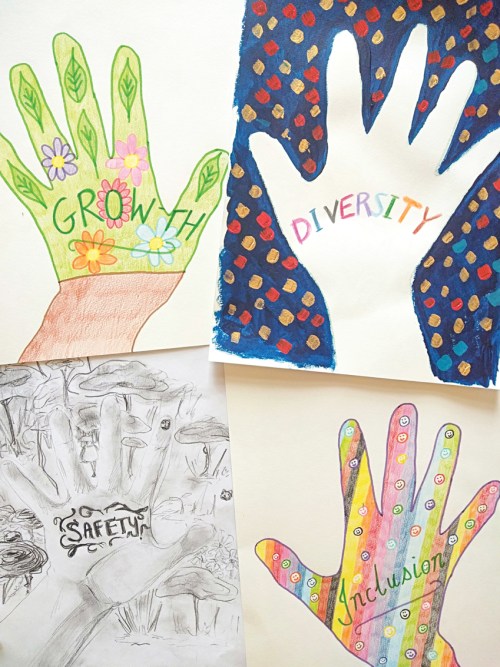
Off-site, the Adelaide Botanic Gardens and Emma have developed the HomeGrown initiative, establishing a community garden at a residential South Australian Housing Authority location. Community gardens across South Australia are well known for helping build communities and this is proving to be a galvanising one too.
Emma has engaged with residents to create a unique holistic and resident-informed decision-making process and values for their garden, with a strong emphasis on diversity, inclusion, respect and safety.
Caring and sharing seem to be interconnected to this community garden. Sowing, growing and producing a bounty of edibles has provided many participants with a major sense of achievement. Couple this with being able to provide others in their community with fresh, flavoursome and healthy produce, and good things are happening. Residents have reported feeling closer to the community and improved mental health and confidence, plus access to fresh, organic produce has changed eating habits.
One HomeGrown program participant summed up their feelings: “It’s not just about the planting and the gardening and giving the community that skill and the place to do that. The sense of agency and the fact that I get to choose along with my community what happens in this garden, that’s been a massive turning point. I, we, all get to decide. We get to run it, it gives us our power back. The garden has probably been, truly, the first place that I have had agency in my life.”
Therapeutic horticulture is certainly helping to change lives for the better. Here’s to the power of plants and people.
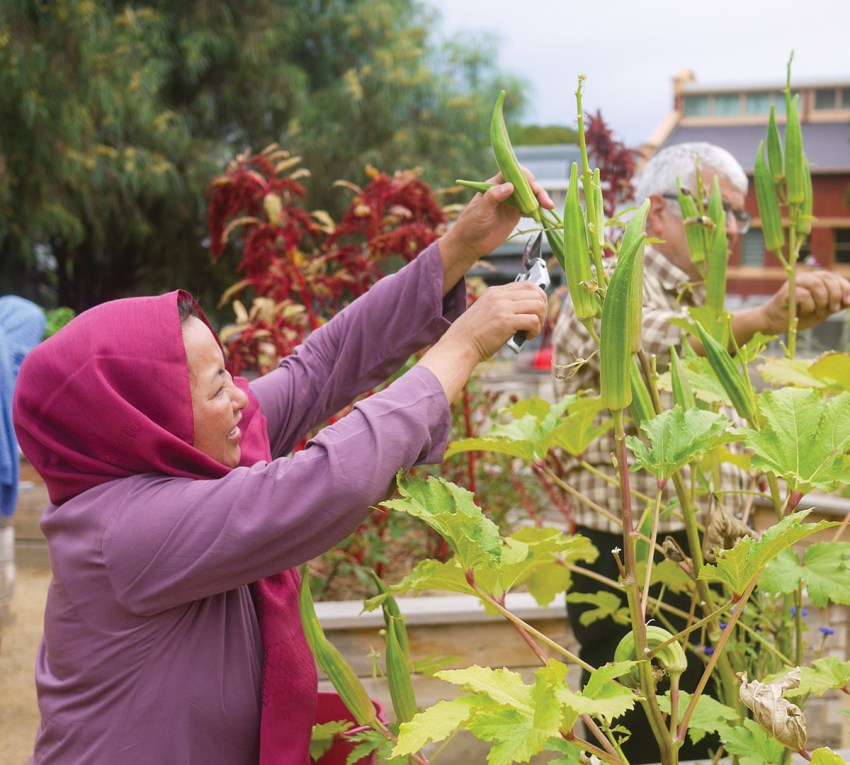
This article first appeared in the February 2023 issue of SALIFE magazine.



